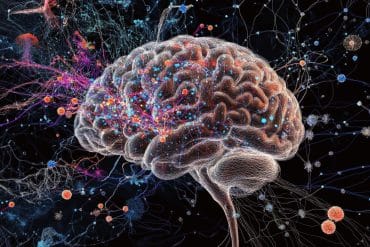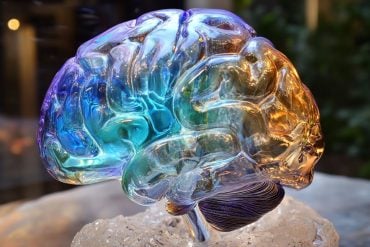Summary: A new study reports teens with high levels of depression display poorer working memory in tests than those with low symptoms.
Source: University of Reading.
Teenagers suffering with depression may struggle with recalling specific memories, according to new research from the University of Reading.
In a paper published in Memory, a team from the School of Psychology and Clinical Language Sciences examined different mechanisms that are thought to interfere with the ability to retrieve specific personal memories, and found that the teenagers with high depression symptoms ruminated much more and displayed poorer working memory in tests compared to their low-depression peers.
Lead author Jeni Fisk, from the University of Reading said:
“It is essential to try to understand why teenagers with depression struggle with everyday tasks such as school work. Our research shows that important aspects of our thinking abilities are disrupted in depression and that these problems interfere with how we remember important memories and with our ability to learn. This is really important, and could help us support young people who are depressed in the classroom and in therapy.”
The study is the first of its kind to test three components of a memory model (The CaR-FA-X model) in relation to depression symptoms in adolescents. The CaR-FA-X model consists of three mechanisms (rumination, reduced executive function and functional avoidance) that are thought to cause Overgeneralised Autobiographical Memory (OGM).
Teenagers with very high symptoms of depression were tested alongside another group with low levels of depression. Groups were measured on rumination (having thoughts go around and around in your mind), working memory (holding information in your mind while using that information to accomplish a task), inhibition (holding back when you have an urge to do something), and verbal fluency.

Fisk continued:
“It is important to understand OGM as it is associated with the development and persistence of depression. We observed that adolescents with elevated depression symptoms retrieved fewer specific memories, ruminated more, and displayed reduced executive function.
“These results confirm that there is a relationship between low mood and OGM in young people and that OGM may arise as consequence of reduced executive function and cognitive interference due to rumination.”
Funding: This work was supported by University of Reading.
Source: University of Reading
Publisher: Organized by NeuroscienceNews.com.
Image Source: NeuroscienceNews.com image is adapted from the University of Reading news release.
Original Research: Abstract for “A test of the CaR-FA-X mechanisms and depression in adolescents” by Jeni Fisk, Judi A. Ellis & Shirley A. Reynolds in Memory. Published September 5 2018.
doi:10.1080/09658211.2018.1518457
[cbtabs][cbtab title=”MLA”]University of Reading”Teenage Depression Linked to Inability to Recall Specific Memories.” NeuroscienceNews. NeuroscienceNews, 21 February 2019.
<https://neurosciencenews.com/teen-depression-memory-10788/>.[/cbtab][cbtab title=”APA”]University of Reading(2019, February 21). Teenage Depression Linked to Inability to Recall Specific Memories. NeuroscienceNews. Retrieved February 21, 2019 from https://neurosciencenews.com/teen-depression-memory-10788/[/cbtab][cbtab title=”Chicago”]University of Reading”Teenage Depression Linked to Inability to Recall Specific Memories.” https://neurosciencenews.com/teen-depression-memory-10788/ (accessed February 21, 2019).[/cbtab][/cbtabs]
Abstract
A test of the CaR-FA-X mechanisms and depression in adolescents
People who have depression have difficulty recalling specific autobiographical information (Sumner, (2011) The mechanisms underlying overgeneral autobiographical memory: An evaluative review of evidence for the Ca R-FA-X model. Clinical Psychology Review, 3231(1), 34–48). This is called overgeneral autobiographical memory (OGM) and is associated with the development and persistence of depression. Williams, Barnhofer, Crane, Hermans, Raes, Watkins, & Dalgleish (2007 Autobiographical memory specificity and emotional disorder. Psychological Bulletin, 133(1), 122–148) proposed that OGM is maintained by three mechanisms: capture and rumination (CaR), functional avoidance (FA), and impaired executive control (X), and integrated these into the CaR-FA-X model. The aim of this study was to assess OGM and test the CaR-FA-X model in adolescents with low mood. We recruited 29 young people aged 12–17 with elevated symptoms of depression and 29 with minimal symptoms of depression, matched for gender and age. After controlling for IQ, adolescents with elevated depression retrieved fewer specific memories, ruminated more, and had poorer working memory and verbal fluency than adolescents with minimal depression. The groups did not differ on measures of inhibition or functional avoidance. The CaR-FA-X model was therefore partially supported. These results confirm that there is a relationship between low mood and OGM in young people and that OGM may arise as consequence of impaired working memory and verbal fluency and cognitive interference due to rumination.






